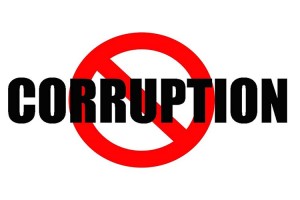
Aug 21, 2019 | News
The ICJ in collaboration with the Zimbabwe Anti-Corruption Commission (ZACC) and the National Prosecuting Authority (NPA), today launched a broad base anti-corruption awareness campaign in Harare.
The campaign was introduced by the President of Zimbabwe H.E. Cde Emmerson D. Mnangagwa and is expect to effectively run for 15 months.
It will harness different forms of media to spread awareness on the negative impact corruption has on the rule of law, human rights and development.
The anti-corruption awareness campaign is part of a broader longstanding rule of law initiative by the ICJ in collaboration with with stakeholders in the justice sector, to strengthen the rule of law for the protection and promotion of human rights for all, including women and persons from marginalized or disadvantaged groups.
Corruption undermines the rule of law by impeding access to justice through diversions of public resources for private gain.
As such the ICJ, through the support of the EU, is working towards increased transparency and integrity in the justice delivery system in order to increase access to justice for all.
“Zimbabwe has no option but to fight corruption if it is to be a just, peaceful and successful developmental state,” said Arnold Tsunga, ICJ’s Africa Regional Director.
“The reconstituted ZACC has demonstrated a strong desire to pursue its mandate with renewed commitment from other stakeholders in the justice delivery chain,” he added.
The campaign is not undertaken in isolation. It builds on other initiatives to combat corruption under this programme, which include the establishment of an anti-corruption court, training of personnel for the court and various research initiatives.
The campaign seeks to support the national efforts against corruption, and sensitize the public on the negative effects of corruption in society.
It will promote awareness on how to report corrupt practices, how to avoid corrupt practices and the impact of corruption on the public interest.
The campaign acknowledges that different sections of the population engage with media in varying manners. As such it utilises a wide array of approaches designed to build the optimism of the people of Zimbabwe to take an active role in efforts to combat corruption at every level of society.
The campaign launch was attended by justice sector actors, civil society representatives, business representatives and the diplomatic.
Contact:
Arnold Tsunga, Director of the Africa Regional Programme, International Commission of Jurists C: +263 77 728 3248, E: arnold.tsunga(a)icj.org
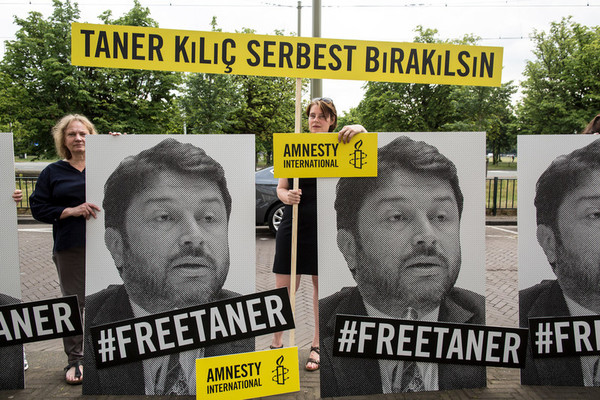
Aug 19, 2019 | Advocacy, Cases, Legal submissions
The International Commission of Jurists, the Turkey Human Rights Litigation Support Project and Human Rights Watch have jointly intervened before the European Court of Human Rights in the case of Taner Kiliç, former Chair of the Board of Amnesty International Turkey.
Taner Kiliç is a Turkish human rights defenders. He had been Chair of the Board of Amnesty International Turkey since 2014.
He was arrested on 6 June 2017 on reportedly unsubstantiated charges of “membership of a terrorist organisation” and was released on bail on 15 August 2018 after having spent 14 months in detention.
His case before the European Court of Human Rights challenges the lawfulness of his pre-trial and on remand detention, the violations of his right to judicial review of his detention, and of his freedom of expression and association, considering his arrest linked to his work as leader of a NGO.
As the interveners have written to the Court, this case epitomises some of the most fundamental human rights challenges in Turkey today.
These involve widely documented restrictions on freedom of expression, association, and assembly of human rights defenders (HRDs) and rapidly closing civil society space.
The interveners have submitted observations on:
- the factual context in respect of the situation facing HRDs in Turkey;
- international standards governing obligations towards HRDs of relevance to the Court’s interpretation of the European Convention on Human Rights, including the limits prescribed by Article 18;
- key principles necessary for a rule of law approach to the application of the criminal law, against the legal and practical pattern of excessive resort to criminal law against HRDs in Turkey today.
Turkey-ECtHR-icj&others-Kilic-Advocacy-legal submission-2019-ENG (download the third party intervention)
Photo credit: Amnesty International
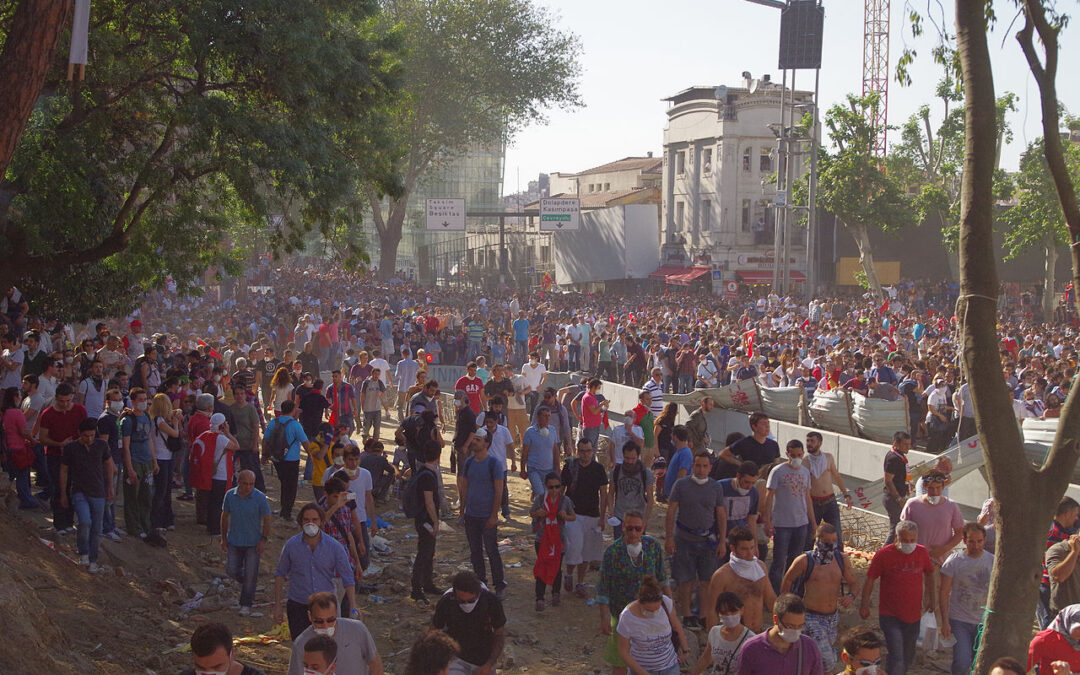
Jul 18, 2019 | News
The ICJ and the International Bar Association’s Human Rights Institute (IBAHRI) have jointly sent international observers to attend the second hearing of the criminal trial on the “Gezi Park” protest at the Silivri Prison Courthouse in Istanbul, scheduled to take place on 18 and 19 July 2019.
The ICJ and IBAHRI observers will be monitoring a trial hearing before İstanbul 30th Assize Court with prinicipal defendant Osman Kavala, and 15 others; Ali Hakan Altınay, Ayşe Mücella Yapıcı, Ayşe Pınar Alabora, Can Dündar, Çiğdem Mater Utku, Gökçe Yılmaz, Handan Meltem Arıkan, Hanzade Hikmet Germiyanoğlu, İnanç Ekmekci, Memet Ali Alabora, Mine Özerden, Şerafettin Can Atalay, Tayfun Kahraman, Yiğit Aksakoğlu and Yiğit Ali Ekmekçi.
The observers will report directly to the IBAHRI and ICJ Secretariats on the proceedings following the mission.
The Gezi Park protests began in May 2013 as an effort by a group of environmentalists to save a park in central Istanbul from being rezoned, but soon turned into nationwide demonstrations.
The protest was quelled by police with the use of tear gas and water cannons against the protesters in Taksim Square. Following a six-year investigation into the events, the 657-page indictment issued by the Istanbul Chief Public Prosecutor’s Office was accepted by the 30th A Court in Istanbul on 4 March 2019.
The defendants are to be charged under Turkish Criminal Code Article 312 (attempt to overthrow the Turkish Government or attempt to prevent it from fulfilling its duties), Article 151 (damage to property), Article 152 (qualified damage to property), Article 174 (possession or exchange of hazardous substances without permission), Article 153 (damaging places of worship and cemeteries), Article 149 (qualified robbery), Article 86 (intentional injury); crimes under the Law on Firearms, Knives and Other Tools no. 6136, and crimes under the Law on Protection of Cultural and Natural Assets no. 2863.
The total sentence asked for by the prosecution for these offences amounts to approximately 47,520 years imprisonment.
Contact:
Massimo Frigo, Senior Legal Adviser, t: +41 22 979 38 05 – e: massimo.frigo(a)icj.org
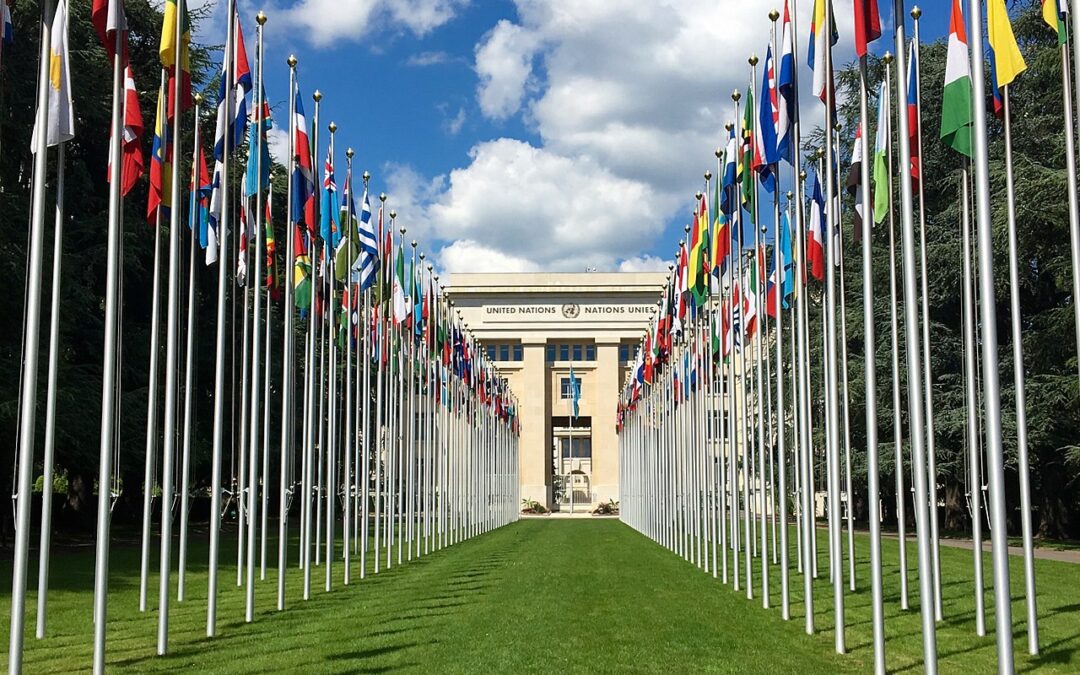
Jul 17, 2019 | Advocacy, News, Non-legal submissions
Today, the ICJ filed a submission to the Human Rights Council’s Working Group on the Universal Periodic Review in advance of its review of Turkey’s human rights record in January 2020.
In its submission, the ICJ considered:
- the situation with the independence of the judiciary in Turkey, during and after the state of emergency of 2016-2018;
- the lack of effective remedies for the mass dismissals in the public sector occurred in that period;
- the shortcomings in fair trial rights in the criminal justice system:
- the obstacles to the action of civil society;
- the lack of accountability for torture and enforced disappeareances; and
- provided information on the status of international human rights treaties ratified by Turkey.
Contact:
Massimo Frigo, ICJ Senior Legal Adviser, e: massimo.frigo(a)icj.org
Full submission in English (PDF) : Turkey-UPR-Advocacy-non-legal submissions-2019-ENG
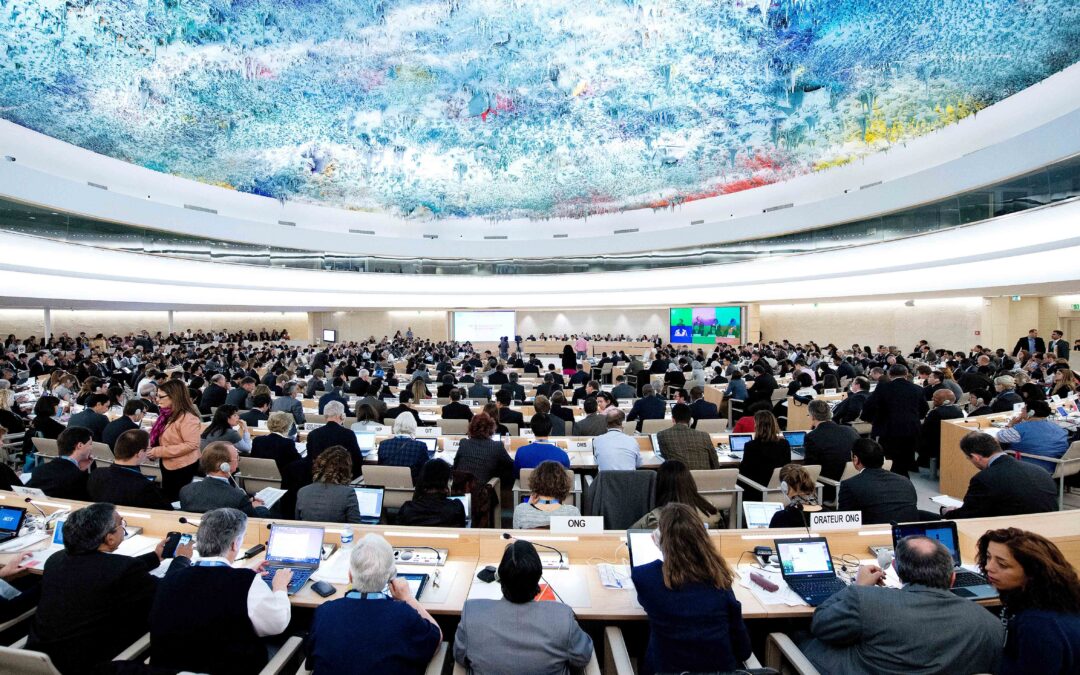
Jul 1, 2019 | Advocacy, Non-legal submissions
The ICJ today joined other NGOs in calling on States to do more to save lives and uphold human rights of migrants, including by recognising the role of civil society and creating an environment for its work.
The statement to the UN Human Rights Council, delivered on behalf of the group of NGOs by the International Catholic Migration Commission, read as follows:
“We are deeply concerned by widespread and growing violations of the human rights of migrants and an environment where those who seek to protect them are increasingly criminalized.
The Global Compact for Migration provides technical guidance and a cooperative framework for the implementation of existing legal commitments. It is mobilizing resources to support States in this.
We are asking you to do more and to do better to save lives and uphold human rights. The Compact can help you do this.
Civil Society is already using the Compact at regional and national level, often in partnership with States, for example:
- Civil society in Central America are developing a pilot programme to identify missing migrants to support States’ implementation of Objectives 8 and 9.
- Migrant Forum in Asia has led consultations with governments and other stakeholders throughout Asia.
- Cross-Regional Center for Refugees and Migrants has developed a baseline assessment on the GCM for the MENA region.
- The International Detention Coalition is working with States to develop a cross regional platform on alternatives to child immigration detention in line with Objective 13(h)
We believe these activities can inspire similar measures, but we need all States to create an environment that enables us to do so and we need all States to take leadership on implementation.
The human rights of migrants deserve the acknowledgement, respect, and urgent action of all of us.”
Delivered by the International Catholic Migration Commission, the statement was co-sponsored by the following ECOSOC accredited NGOs:
- ACT Alliance
- Alianza Americas
- Asylum Access
- Caritas Internationalis
- Congregation of Our Lady of Charity of the Good Shepherd
- Congregations of St. Joseph
- Defence for Children International
- International Catholic Migration Commission
- International Commission of Jurists
- International Council of Voluntary Associations (ICVA)
- International Detention Coalition
- International Movement Against All Forms of Discrimination and Racism (IMADR)
- Migrant Forum in Asia
- Save the Children
- Terre des Hommes International Federation
- Translators without Borders
- Vivat International
- World Organization for Early Childhood Education (OMEP)
The statement was also supported by the following NGOs and networks who do not have ECOSOC accreditation:
- Action Secours Ambulance (ASA)
- Asia Pacific Refugee Rights Network (APRRN)
- Asociación Rumiñahui
- Bloque latinamericano y el Caribe sobre Migración
- Casa Monarca ayuda humanitaria al migrante
- Center for Migrant Advocacy, Philippines (CMA-Phils)
- Centro de Atención y Desarrollo Integral Migrante (CADIM Oxnard)
- Centro de Recursos Centroamericanos Del Norte California (CARECEN)
- Centro de Atención a la Familia Migrante e Indígena (CAFAMI)
- Civil Society Action Committee
- Comision de Accion Social Menonita (CASM)
- Destination Unknown Network
- Estancia del Migrante González y Martínez
- FM4 – Paso Libre
- Fundación para la Justicia y el Estado Democrático de Derecho
- Global Coalition on Migration
- Institution para las Mujeres en la Migración (IMUMI)
- Instituto de Estudios y Divulgación sobre Migración (INEDIM)
- International Presentation Association
- NGO Coalition on Migration
- Organismo Cristiano de Desarrollo Intergral de Honduras (OCDIH)
- Pacific Islands Association of Non-Government Organisation (PIANGO)
- Plateforme des Organisations Nationales et Territoriales (Pont-Sch)
- Red de Mujeres del Bajío
- Red Internacional de Migración y Desarrollo
- Red Jesuita con Migrantes de América Latina y Caribe (RJM-LAC)
- Religious of the Sacred Heart of Mary
- Solidarity Centre
- The Mixed Migration Centre
- Women in Migration Network









